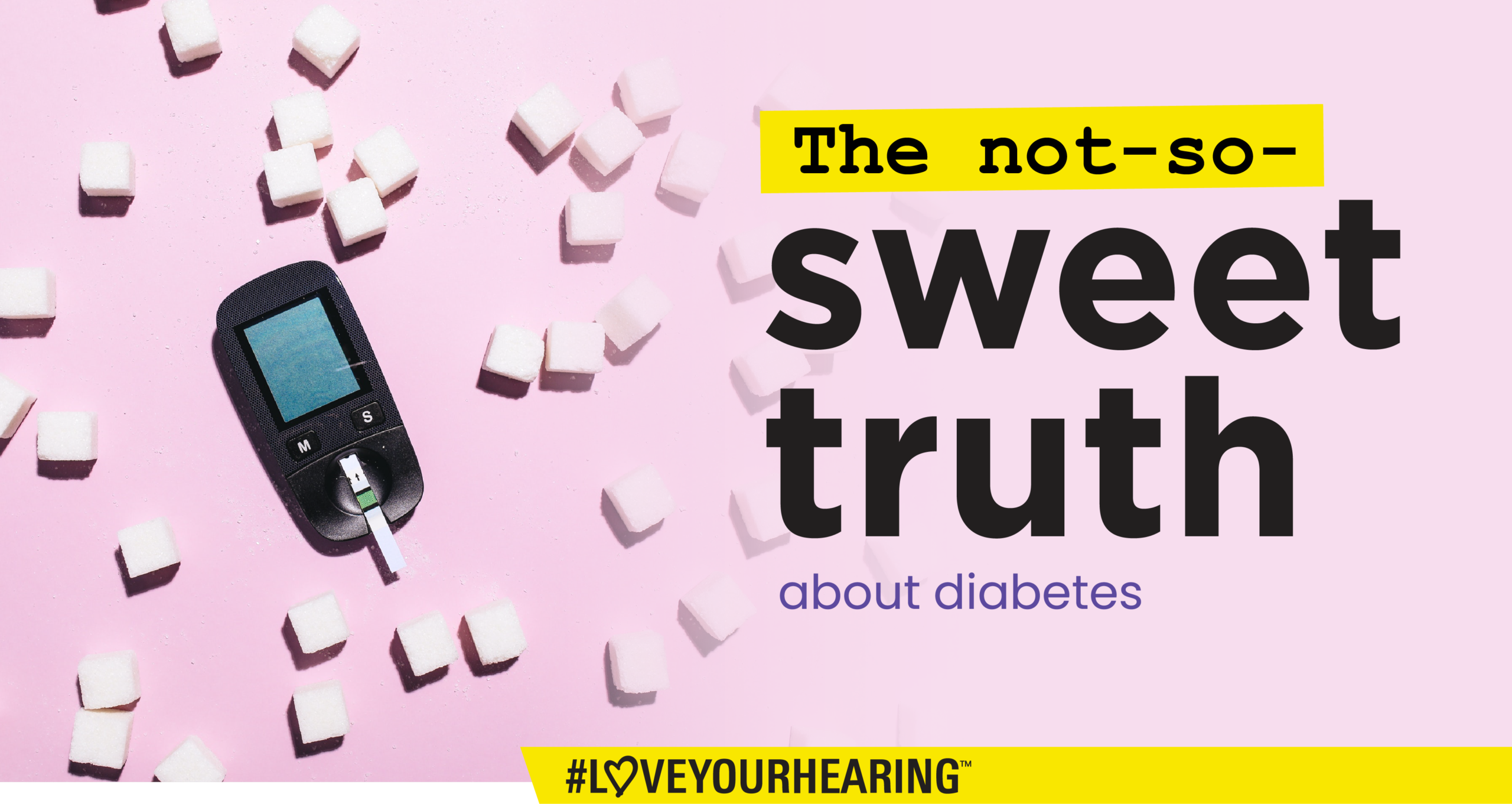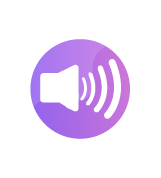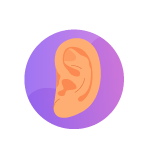
What goes up must come down. Often, it’s not the ground floor, but rock bottom!
Sugar makes us do weird stuff and boosts our energy levels, but what does this addictive “high” do to our hearing health over time?
The 14th of Nov 2022 is World Diabetes Day, so let’s unpack the truths together and use this month to know more about controlling our sugar intake and protecting our hearing.

As kids, the sugar high and sugar low is something our parents knew little about, but they let us ‘be kids and have fun.’ Fast forward decades later, we see that many adults with diabetes are the product of their poor eating habits during their childhood.
Back in the day, it was unknown that diabetes increases your risk for hearing loss, and today, with the vast amount of information at our fingertips, we know that the crucial aspect of diabetes management comes down to controlling our blood sugar.
So, when it comes to hearing loss, we need to know the following facts.
Hearing loss generally occurs from the tiny blood vessels and inner ear nerves being damaged by high blood sugar levels.
In comparison to people of the same age without diabetes, hearing loss affects people with diabetes twice as frequently.
Even those who are prediabetic, those whose blood sugar levels are over normal but not high enough to qualify as having type 2 diabetes, have a 30% greater chance of hearing loss than those whose blood sugar levels are normal.
So being aware of your sugar intake and maintaining a sugar level balance is the best way forward.

Over time, low blood sugar can also harm how nerve impulses from the inner ear reach the brain. So, in both regards, both high and low blood sugar can have harmful effects on your hearing. Making it key that we control our sugar levels and be mindful of some tell-tale signs that might indicate we may have hearing loss.
The most typical warning signs of hearing loss are:

Having trouble following discussions

Thinking that others are muttering

Having trouble hearing in busy environments

Turning up the volume on the TV, radio, and mobile devices

Although hearing loss cannot be reversed, you may still help by:

Being cautious to keep your blood sugar levels in a healthy range

Listen to your body

Maintain a healthy, balanced diet

Exercise as part of a healthy lifestyle programme

Having your levels checked by your pharmacist or GP
With the festive season nearly upon us, try to be aware of your sugar intake.
If you have experienced any of the warning signs, get in touch with our team and make an appointment at your nearest Hearing Works store today.


